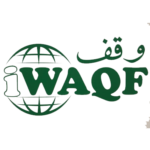Artificial Intelligence (AI) stands at the forefront of technological advancement, reshaping industries, economies, and societies worldwide. In the realm of Islamic culture and practice, AI presents a myriad of opportunities to innovate, enhance education, foster ethical applications, and contribute to societal development. Let us explore the promising prospects that AI offers within an Islamic framework.
AI Revolutionizing Islamic Education
Education holds a central place in Islam, emphasizing the pursuit of knowledge as a sacred duty. AI-driven technologies provide transformative tools to revolutionize Islamic education. Adaptive learning platforms, intelligent tutoring systems, and AI-powered educational content offer personalized learning experiences tailored to individual students’ needs. These innovations can facilitate the teaching of Quranic studies, Islamic history, Arabic language, and other essential subjects in more engaging and accessible ways.
Ethical AI Applications in Islamic Finance
Islamic finance operates on ethical principles that prohibit interest (riba) and promote risk-sharing and socially responsible investments (SRI). AI plays a pivotal role in analyzing vast financial data, facilitating Sharia-compliant transactions, managing risks, and ensuring compliance with Islamic finance principles. Automated systems powered by AI contribute to more efficient and transparent operations within Islamic banking and finance institutions.
AI-Powered Healthcare and Social Welfare
In Islamic teachings, promoting well-being and caring for the less fortunate are core values. AI-driven healthcare solutions, including predictive analytics, telemedicine, and medical imaging, enable more accurate diagnoses, personalized treatment plans, and improved healthcare accessibility. Additionally, AI can assist in optimizing social welfare programs by analyzing data to identify vulnerable populations, streamline distribution processes, and ensure efficient resource allocation.
Preserving Islamic Heritage and Culture
AI technologies offer innovative avenues to preserve and promote Islamic heritage and cultural artifacts. Digitization efforts powered by AI facilitate the preservation of historical manuscripts, architecture, art, and cultural artifacts. AI-driven language processing tools aid in translating and analyzing ancient texts, contributing to the preservation and dissemination of Islamic knowledge and heritage for future generations.
Ensuring Ethical and Responsible AI Development
In integrating AI within an Islamic context, it becomes crucial to ensure adherence to ethical principles and moral values. Islamic teachings emphasize accountability, justice, and compassion. Thus, AI development should align with these principles, prioritizing fairness, transparency, and accountability in algorithmic decision-making processes.
Conclusion: Embracing the Intersection of AI and Islamic Values
The convergence of AI and Islamic principles offers a unique opportunity to leverage technological advancements for the greater good of society. By embracing AI innovations while upholding ethical considerations, the Islamic world can harness the potential of technology to address contemporary challenges, enrich educational experiences, foster economic development, and preserve its rich cultural heritage.
As we navigate the evolving landscape of AI, it’s imperative to approach these advancements with a mindset that aligns with the ethical foundations of Islam. By doing so, we can ensure that AI serves as a force for positive change, benefitting humanity and contributing to the advancement of Islamic values in the modern worl

Awqaf Africa is a prominent organization dedicated to empowering communities across the African continent. Established to foster sustainable development and social welfare, Awqaf Africa focuses on harnessing the potential of endowments (awqaf) to drive positive change. Through strategic initiatives, partnerships, and impactful projects, Awqaf Africa endeavors to address socio-economic challenges and promote prosperity within African societies.
- Choose your favourite cause
- Register to our website !
- Donate the amount you like
- Stay tuned about cause






Saige Ruiz